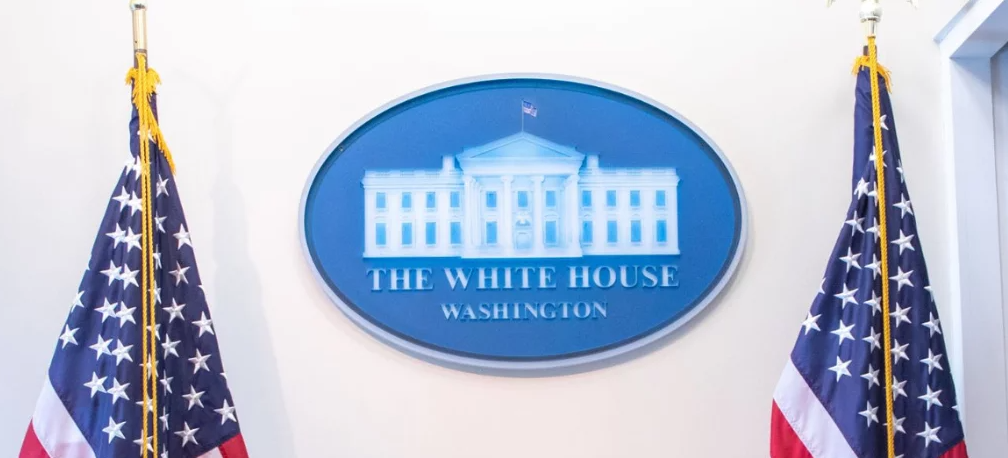Post-Event Report on the “Building the Next Generation of Hispanic Leaders in STEM” Briefing at the White House

The Office of Public Engagement Welcomed SHPE Members and Staff for an Exclusive Event at the White House on April 18, 2023.
On April 18, 2023, fifty SHPE members joined a handful of SHPE staff at a briefing on “Building the Next Generation of Hispanic Leaders in STEM” held by the Office of Public Engagement at the White House in Washington, DC and organized by SHPE’s Government Relations department.
The purpose of the briefing was to bring together Administration officials and SHPE representatives for a meaningful discussion of how academia, the private sector, and government can meet labor needs, reduce barriers, and increase representation, while constructing a sustainable education and domestic workforce pipeline of Hispanic students and professionals in STEM.
During the opening remarks, Dr. Amy Loyd, Assistant Secretary for the Office of Career, Technical, and Adult Education (OCTAE) at the Department of Education, spoke to the group about current and new higher education opportunities at OCTAE and how she believes that celebrating multilingualism and promoting holistic approaches should be at the forefront of raising the bar on STEM education.Asma Mirza, SAP and Deputy for Infrastructure Implementation Management at the White House, shared that her focus is on implementing the Bipartisan Infrastructure Law, which made historic investments to improve affordable high-speed internet, clean water infrastructure, updating power grids, tackling pollution, public safety, climate resilient public transit. Not only does this law improve the daily lives of many families and individuals, but also creates STEM jobs everywhere in the country.
After thanking the Office of Public Engagement, President Biden, and the SHPE members who made the trip to DC, SHPE CEO Miguel Alemañy said, “There’s no better time than now to put a spotlight on our members. They are part of the 8% that makes up for all Hispanics in the STEM workforce nationwide. A recent report estimated that by 2031, the STEM employment projection will outpace non-STEM sectors by nearly 11%. SHPE is eager to meet that projection by preparing, coaching, and empowering our members through our proven and renowned programs. We are committed to opening more doors and holding them open so that many more generations of Hispanics in STEM can break as many glass ceilings as possible.”
Following the opening remarks, the group split into three sessions covering early STEM education, Latinas in STEM, and workforce development –
In the first session about early STEM education, the group agreed that early exposure to STEM allows future generations to see themselves doing it, and waiting until high school to engage students is too late. It’s critical to engage students at an early age with interactive experiences, as well as equipping parents and caregivers to effectively support their pre-college children. Another important component is to be sure young people are exposed to successful leaders in STEM who look like them; that they have role models to emulate. Kevin Lima, Special Assistant for the Office of Communications and Outreach at the Department of Education said, “The Department of Education is committed to the help implement and scale equitable, high quality STEM education for all students from PreK to higher education to ensure their 21st century career readiness and global competitiveness. Early exposure to STEM careers is vital in inspiring young Latinos and Latinas to join the STEM field.”
In the second session about Latinas in STEM, the group agreed that visibility and representation are critical. The impact of having at least one Latina in every level of the workforce, we can create bonds, networks, and coaching environments that pave the way for more Latinas to enter STEM fields. But changing the ecosystem women are in means educating others about being allies – recognizing the talent Latinas have, acknowledging their worth, coaching them, and empowering them to advocate for themselves. For example, Latinas currently earn 54 cents per dollar. To be able to advocate for themselves effectively, there needs to be wage transparency at all levels, so Latinas know their worth and can push to have their wages reflect that value to the organization. Additionally, re-entry programs are critical, especially after having a child or caring for an elderly parent. The government, industry and academia must have systems in place to support these Latinas reentering the workplace.
In the third session about workforce development, the group discussed how better access to information is critical to how colleges and universities promote STEM resource opportunities that the government has dedicated to increase equity for young and seasoned Hispanic professionals. Additionally, NASA, OSTP, and the National Science Foundation (NSF) need continued conversations with organizations like SHPE to identify barriers and find equitable solutions impacting the Hispanic community, while promoting Hispanic role models in STEM. Dr. Michela Muñoz Fernández, Mars Sample Return Program Executive at the National Aeronautics and Space Administration (NASA) said, “NASA supports Hispanic employees in terms of education and training opportunities to help them in their careers by leveraging Employee Resource Groups (ERGs) to socialize and provide access to information on opportunities. We are determined to continue bridging the gap between access and information and specifically meet the employees’ needs to ensure they benefit from an enriching experience at NASA.” Finally, active collaboration with academia and the private sectors will be catalysts for creative solutions to close the gap between talent and non-traditional pathways in education and the workforce. Dr. Nafeesa Owens, Assistant Director for STEM Education and Workforce, Senior Policy Advisor at White House Office of Science and Technology Policy (OSTP) concurred, “Progress happens when we’re all collaborating. OSTP is ready to act, engage, listen, and identify agreeable goals.”
In conclusion, Sol Ortega, Senior Advisor for the Office of Public Engagement at the White House, spoke about the importance of close partnerships with SHPE to increase access, awareness, and workforce development opportunities for Hispanics in STEM, particularly for younger generations that benefit from feeling represented and empowered to be successful in the industry. She and the Administration encourage SHPE members to bring their STEM expertise and unique voice to Washington, DC by pursuing internships and roles at the White House.
